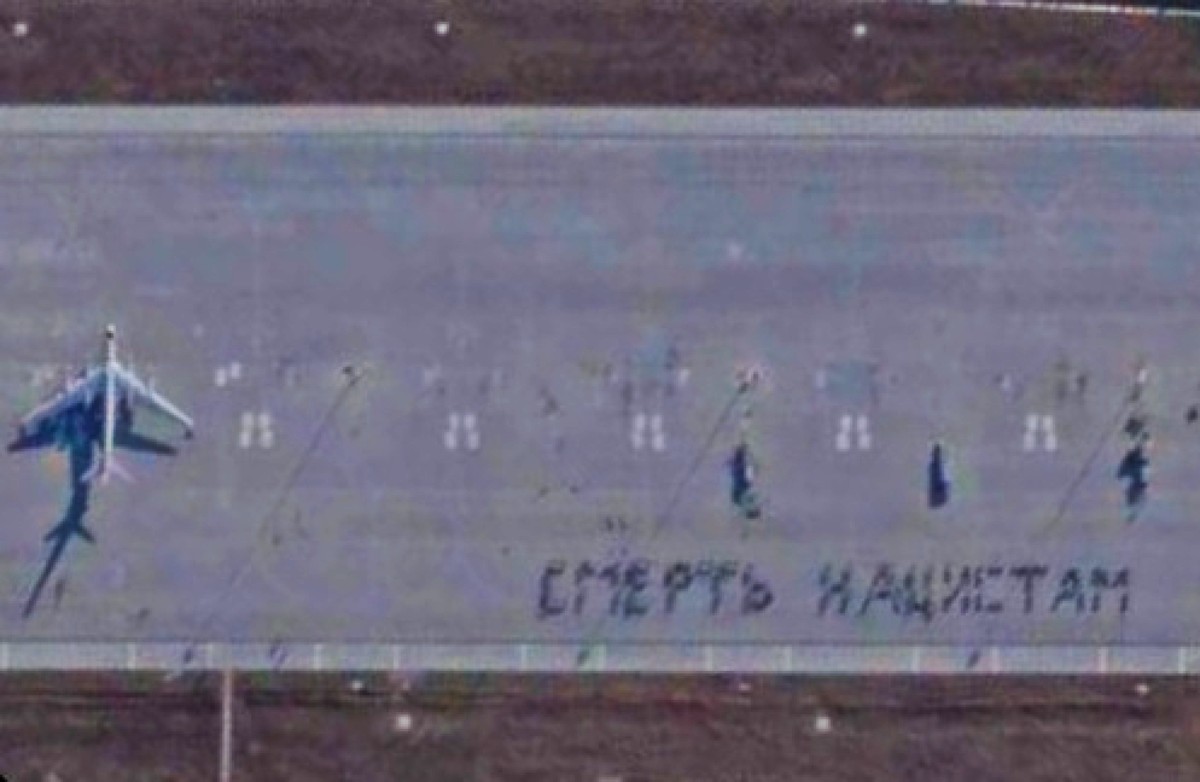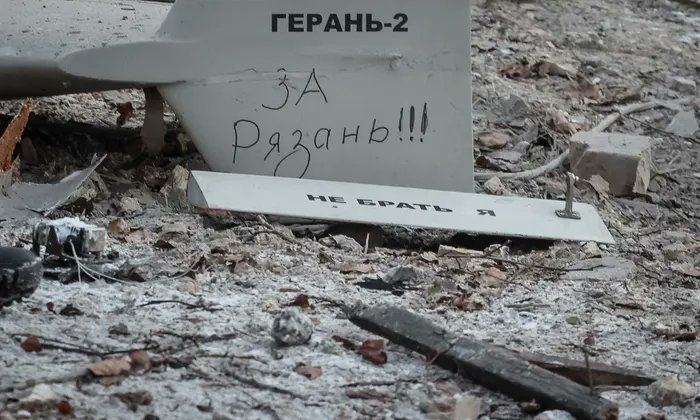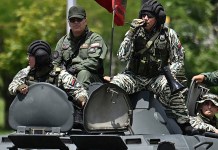After missing in action, Iran-origin Shahed-136 kamikaze drones have made a massive comeback. This time, however, they have a message written on them.
On December 14, Ukraine’s Ministry of Defense announced on Twitter that the capital city Kyiv had come under a massive drone attack and claimed the shooting down all of them.
US JDAM ‘Smart Bombs’ Worthless For Ukraine As Kyiv Lacks Military Aviation To Use Them — Russian Expert
“Another massive drone attack on Kyiv. The Russian military feels confident only when attacking peaceful cities. Today, the Ukrainian air defense took the terrorists down a peg by shooting down 13 of 13 Shahed-136/131 drones,” it tweeted.
The drone attack comes amid reports that Russia had run out of the Iranian Shahed-136 kamikaze drones that had not been seen on the battlefield for weeks. The return of the Shahed comes when Russia has gone on a rampage against Ukraine’s electricity infrastructure following a drone attack on its Air Force bases deep inside the Russian territory.
Russia attacked Kyiv and Zhytomyr with Iranian kamikaze drones "Shahed-136/131" this morning. As of now, air defense shot down 10 drones. Wreckage of one of the Shaheds shot down over central Kyiv has the inscription "For Ryazan". pic.twitter.com/K3FHRlLLbY
— Maria Avdeeva (@maria_avdv) December 14, 2022
Russian vengeance was fully displayed in the drone attack as one of the Shahed-136 shot down had ‘For Ryazan’ written on it. This referenced the alleged Ukrainian drone attack on the Dyagilevo Air Force Base in the Ryazan Oblast.
Besides the Dyagilevo, the Engels-2 Air Base also attacked on December 5.
The Russian messaging here is unmissable as it launched a fresh missile strike against Ukraine right after the unprecedented drone attack exposed the vulnerabilities of its defenses.
In addition, EurAsian Times recently reported that in the latest satellite images of the Engels Air Base published on December 13, the tarmac on the Air Base had a message written in Russian. It read: “Death to the Nazis,” referencing Russia’s Denazification project in Ukraine.

Someone is not very happy with the satellite imagery showing Russian strategic aviation field in Engels, making "Death to Nazis" writing on the tarmac, to be clearly seen from satellite. Image by @planet, h/t @_MTAnderson pic.twitter.com/wJqxTPpKY8
— Mark Krutov (@kromark) December 12, 2022
The twin attack on its Air Force Bases situated deep within its strategic depths came as a significant setback to the Kremlin. Ukraine’s first long-range attack laid bare gaping holes in Russian air defense capabilities and loopholes in its intelligence network. It also made an impression that even the Russian capital, Moscow, was not safe from Ukraine’s weapons.
When the Russian military was still coming to terms with the attack, another drone strike was conducted on an airfield at Kursk. Later, some media reports revealed that the United States had allegedly encouraged Ukraine to carry out the drone attack in Russia and that the drones responsible for the strikes were guided by western chips.
That being said, the attack was a breach of red lines for Moscow, which has since begun a massive onslaught against Ukraine, crippling its electricity network amid a harsh winter. As its missile strike continues unabated, a Russian ally in the war, Iran, has signaled that it was ready to ship the ballistic missiles announced earlier.
The new batch of drones now deployed by the Russian troops also signal intense combat in the following days.
Shaheds Are Back, But Ukraine Has Better Defenses
One of the most notable things about the latest drone attack has been that Ukraine was reportedly able to shoot down all of them. However, it hasn’t been possible to confirm these claims independently.

Ukrainian officials examined the wreckage of the drones that were shot down by the air defense systems. According to the preliminary report, the drones had a different serial number than the ones they sported in previous attacks before they disappeared from combat. This signaled that this is a fresh batch of Shahed-136 kamikaze drones that Russia has received from Iran.
It seems new batch with M5xx serial.. At least early known Shahed-136 aka "Герань-2" on Ukraine were with M2xx serials.
"Rescuers and police experts examine the remains of a drone after a strike on an administrative building in the Ukrainian capital, Kyiv" pic.twitter.com/quh0QmGnjF— Yuri Lyamin (@imp_navigator) December 14, 2022
In November, the UK Military Intelligence update said Russia has likely “exhausted” the “One Way Attack (OWA) aircraft” and can procure more from abroad faster than it can “manufacture new cruise missiles domestically.” Besides, it was reported that Shaheds were not seen after November 17.
However, things turned on December 7, when Yuriy Ihnat, a Ukrainian Air Force Command spokesperson, revealed that Russian forces had sorted out the flaws in the drones and started using the loitering munitions after a three-week hiatus.
At the time, the spokesperson informed that these drones will now operate even in the cold, a capability that was earlier called into question. According to Ukrainian and Russian sources, Moscow has already attacked the provinces of Dnipropetrovsk, Kyiv, Poltava, Zhytomyr, and Zaporizhzhya using these kamikaze drones.
However, this was the first coordinated large-scale attack on the capital in weeks. Ukrainian citizens flooded Twitter about the air sirens blazing and accounts of the drone strike. However, almost every tweet had one statement in common: “The air defenses are working.”
⚡️ Zelensky commends air defense after it takes down all 13 drones that attack Kyiv on the morning of Dec. 14.
“Well done, I’m proud of you,” Zelensky said in a video address.
He also called upon Ukrainians to not ignore air raid alerts and take shelter. pic.twitter.com/MTIWmDktPj
— The Kyiv Independent (@KyivIndependent) December 14, 2022
Ukraine currently employs the NASAMS, IRIS-T, and Hawk air defense systems acquired from the West and their own Soviet-era systems. The latest reports have indicated that the US is in the final stages of working out a transfer of advanced Patriot missile defense systems that Ukraine has been requesting.
It is essential to mention that the Shahed-136 kamikaze drones are cheap UAVs, whereas the Western air defense systems deployed by Kyiv fire expensive surface-to-air missiles causing a price differential.
Some military experts have pointed out that Russia’s drone attacks are a part of a strategy of attrition to exhaust Ukraine’s air defenses.
- Contact the author at sakshi.tiwari9555 (at) gmail.com
- Follow EurAsian Times on Google News




